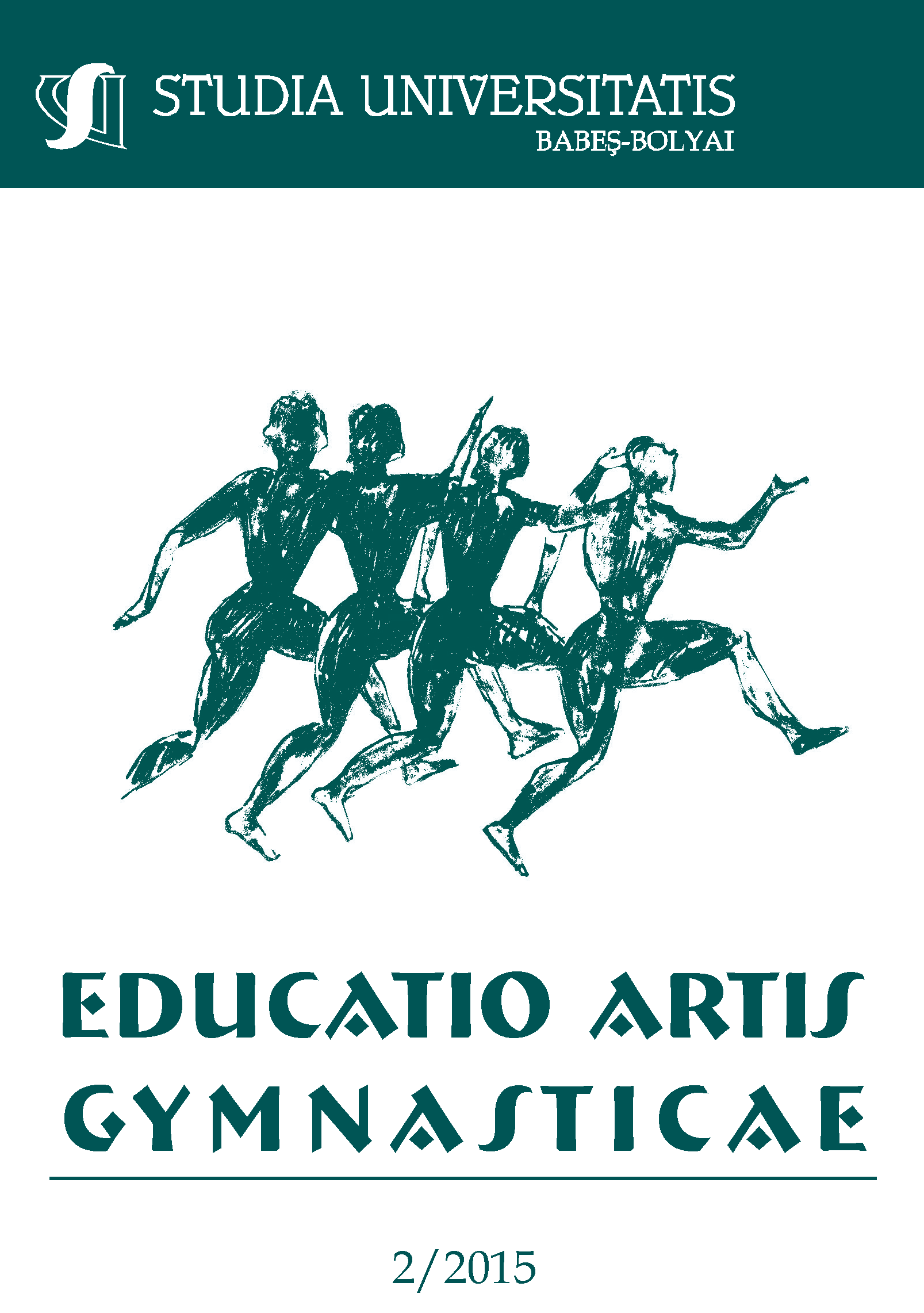THE PEDAGOGUE-COACH AS A DETERMINANT FACTOR OF FOOTBALL TALENT DEVELOPMENT
Keywords:
youth development, football, talent, physical educationAbstract
Background: By the 1990’s a drastic decline of the general quality of football was experienced in Hungary which called for urgent actions in the field of talent development. Decision-makers realized that the development of more technically proficient home-grown players would be in everyone’s best interests. Objectives: The aims of the study are the following: 1. to overview the evolution of the Hungarian Football Development Program; 2. to present the unique features of a youth football club participating in the Program as an example of good practice; 3. to examine the importance of coaches as educators of players. Methods: A qualitative research methodology has been applied in the study. Access was gained to archive sources (decrees, acts, accounts, committee meeting reports) related to state-aid of football talent programs which were examined through document analysis. The study also applied several in-depth interviews with those persons who had key roles in implementing the OTP Bank Bozsik Program in a football club through a fusion (N=5). Results and conclusions: The most important outcome of the predecessors of the OTP Bank Bozsik Program was that they gave a mass base for the selection of football talent which served the development of Hungarian football in the long run and also focused on coaches’ education and professional development. The results also confirmed me that bigger emphasis must be put on the pedagogical knowledge learned within the football coach training.
References
Bognár J., Géczi G., Vincze G., Szabó A. (2009). Coping skills, motivational profiles, and perceived motivational climate in young elite ice hockey and soccer players. International Quarterly of Sport Science, 1, 1-11.
Csáki I, Géczi G, Kassay L, Déri D, Révész L, Zalai D, Bognár J. (2014). The new system of the talent development program in Hungarian soccer. Biomedical Human Kinetics, 6, 74-83.
Földesiné Sz.Gy., & Gáldiné G.A. (2008). Sport Politics at Crossroads. Hungarian Review of Sport Science, 34(2), 4-10.
Géczi G., Révész L., Bognár J., Vincze G., Benczenleitner O. (2005). Talent and talent development in sport: The issue of five sports. Kalokagathia, 3, 113-123.
Géczi G., Vincze G., Koltai M., Bognár J. (2008/2009). Elite young team sport players’ coping, motivation and perceived climate measures. Physical Culture and Sport Studies and Research, 229-242.
Gombocz J. (2002). Sport and education. In Göltl B. (ed.), Soccer step by step (pp.15-37). Budapest: Hungarian Society of Sport Science.
Gombocz J. (2004). The pedagogical role of the physical education teacher and the coach. In Bíróné N. E. (ed.), Sport pedagogy (pp. 147-172). Budapest–Pécs: Dialog Campus.
Istvánfi Cs. (2005). Education, physical education, sport. Kalokagathia, 43(1–2), 15–26.
Krausz, T. (1999). Political transition and football in Hungary. Eszmélet, 11(42), 162-180.
Lawrence, I. (2008). Talent identification in soccer: A critical analysis of contemporary psychological research. Soccer Journal, York St. John University, 9-14.
Ministry of Youth and Sports (2000). Kick-off for the next century. Budapest: Ministry of Youth and Sports.
Németh Zs. (2011). The pattern of the conflict managing culture of junior class football coaches. PhD dissertation, University of Pécs „Education and Society” Pedagogical Doctoral School, Pécs.
Roderick, M. (2006). The work of professional football. A labour of love? Oxford: Routledge.
Tenenbaum, G., & Driscoll, M.P. (2005). Methods of research in sport sciences: Quantitative and qualitative approaches. Oxford: Meyer & Meyer Sport.
Thomas, J.R., Nelson, J.K., & Silverman, S.J. (2005). Research methods in physical activity (5th ed.). Champaign, IL: Human Kinetics.
Vincze G., Fügedi B., Dancs H., & Bognár J. (2008). The effect of the 1989-1990 political transition in Hungary on the development and training of football talent. Kinesiology, 40(1), 50-60.
Downloads
Published
How to Cite
Issue
Section
License
Copyright (c) 2015 Studia Universitatis Babeș-Bolyai Educatio Artis Gymnasticae

This work is licensed under a Creative Commons Attribution-NonCommercial-NoDerivatives 4.0 International License.



